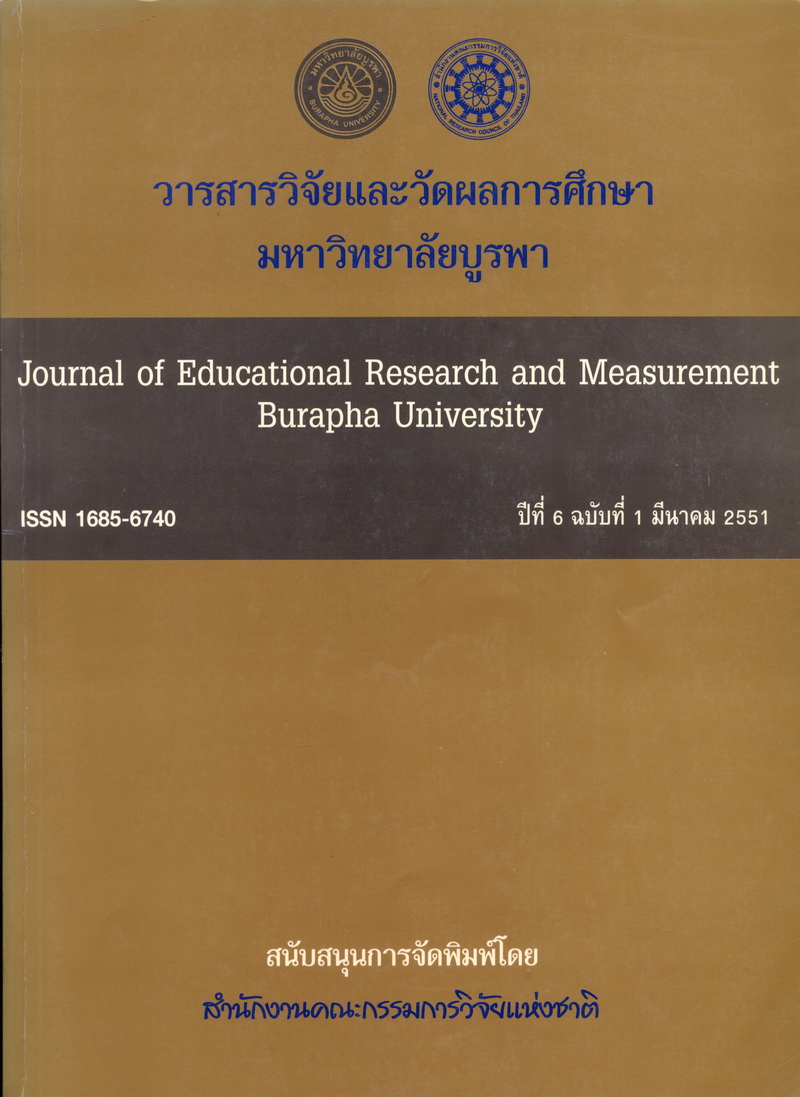The Effect of Exposure to Community Violence on the Academic Failure of Grade 9 Students
Main Article Content
Abstract
The purpose of this research was to develop and validate a casual relationship model of
community violence and personal factors thought to be related to the academic failure of Grade 9 students, based on the Social Learning Theory of Bandura (1977, 1986) and related literature. The proposed model consisted of four latent variables: community violence, aggressive behavior, depression, and academic failure. The sample, derived by mean of multi-stage random sampling, consisted of 337 Grade 9 students in schools under the educational service area office of Chon Buri and Chachoengsao during the academic year 2006. The research instruments included a student characteristic questionnaire, community violence exposure questionnaire, an aggressive behavior scale, and a student depression scale. Data were analyzed by descriptive statistical analysis through SPSS, and causal relationships investigated with LISREL.
Results indicated that the adjusted model was consistent with empirical data. Goodness of fit indicators included a chi-square value of 11.27 with 25 degrees of freedom, p = .99, Goodness of fit index 0.99; Comparative fit index 1.00; Root mean square error of approximation 0.00. The variables in the model accounted for 10 percent of academic failure. Exposure to community violence had a statistically significant indirect impact on academic failure by affecting through aggressive behavior and depression.

